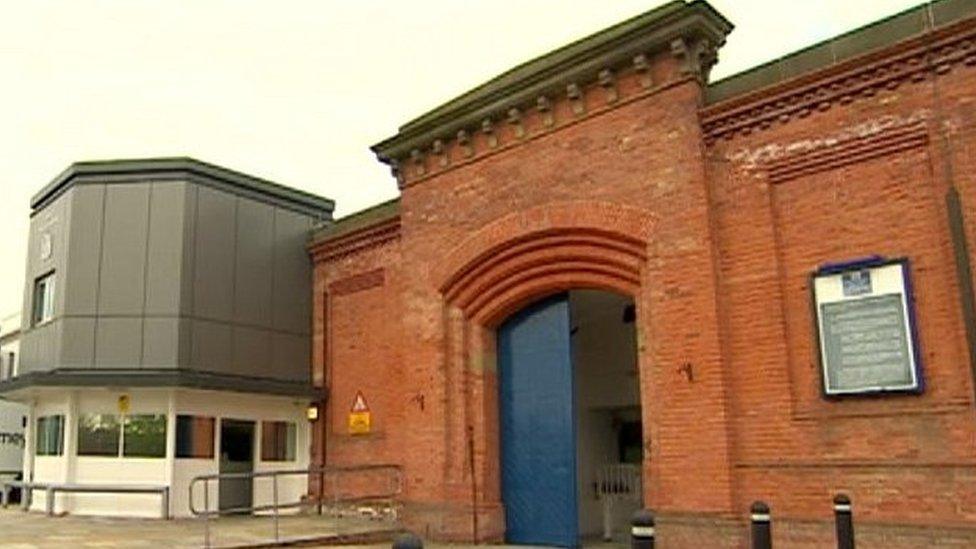HMP Nottingham: Violence problems persist at 'dangerous' prison
- Published
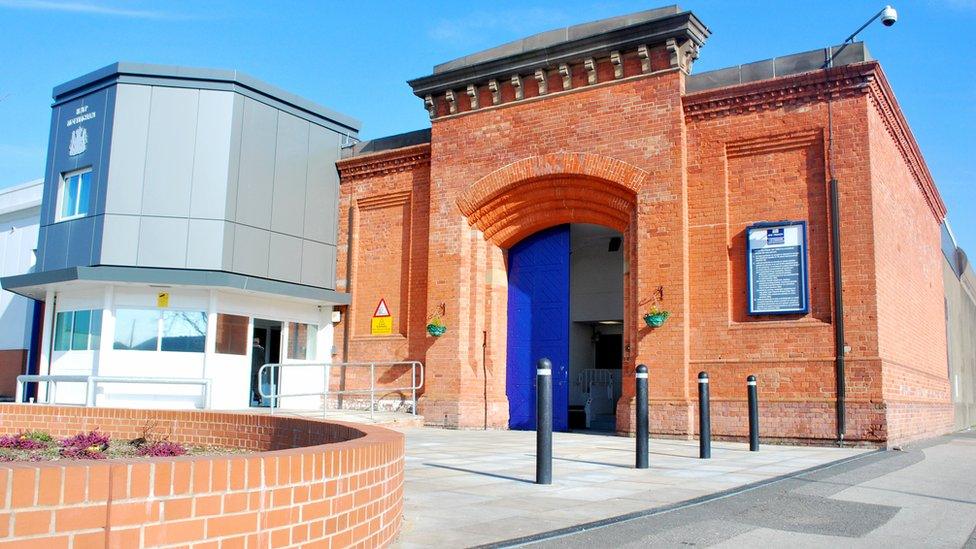
The Category B prison holds up to 800 inmates after the numbers were reduced from 1,060
A prison previously branded "dangerous" still has "very significant" problems with violence, inspectors have said.
In the year covered by the Independent Monitoring Board (IMB) report, four HMP Nottingham inmates are thought to have been killed or killed themselves.
The board also raised concerns about the "humane treatment" of transgender inmates living as women in the men's prison.
The Ministry of Justice said it recognised there was more to do.
A newly-published report looked at the Category B prison from March 2018 to 28 February this year.
Inspection visits began shortly after the Chief Inspector of Prisons, Peter Clarke, told the government to make immediate improvements because the prison was in a "dangerous state".
He described the suicide rate among inmates as "tragic and appalling", with eight prisoners taking their own lives there between February 2016 and January 2018.
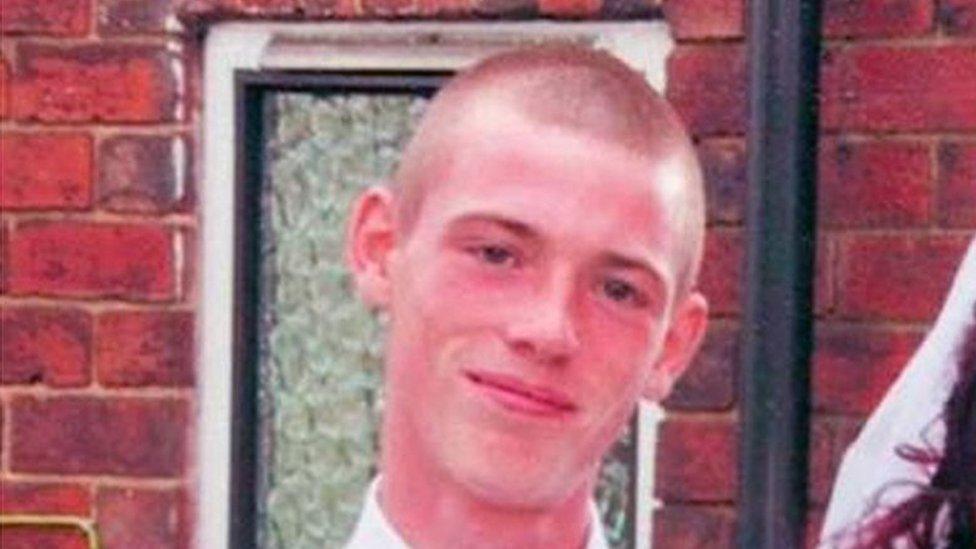
Marc Maltby was one of seven inmates who died at HMP Nottingham in 2017
Of the five deaths during the 12 months covered in the report, the government lists one as a homicide - with a fellow prisoner due to go on trial charged with murder - while three have been noted as "self-inflicted" and one as "natural causes".
The last was in December 2018.
Although inspectors said the prison felt "calmer" by February, the number of reported prisoner-on-prisoner and prisoner-on-staff assaults had gone up, despite the number of inmates going down.
The board said this could be because of better reporting, but added: "It is surprising that [tackling violence] has not been given a higher priority."
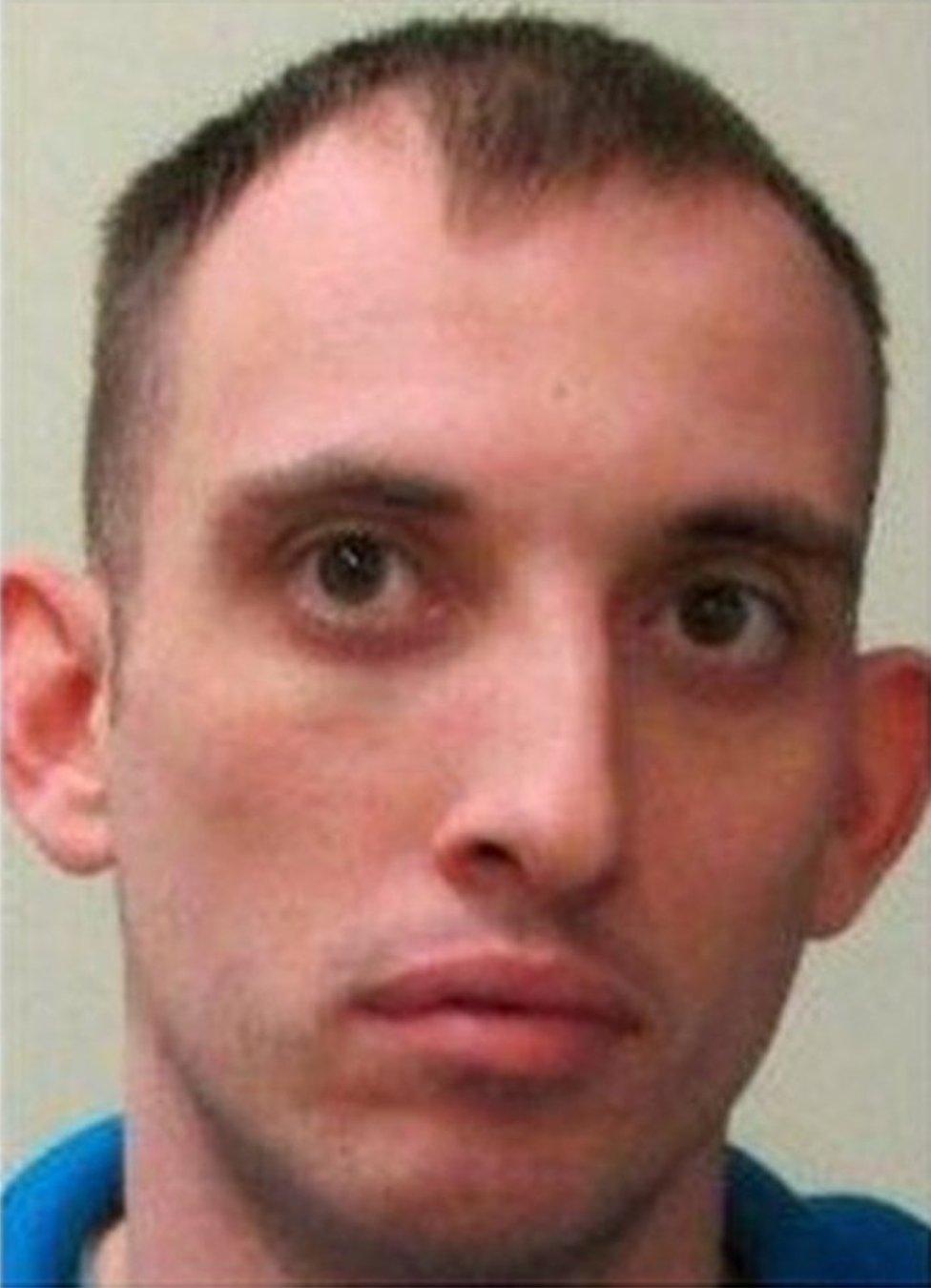
Inmate Shane Stroughton had "inadequate" help from mental health services before killing himself in his cell in 2017, his inquest found
Inspectors also highlighted the plight of the jail's small number of transgender inmates.
"Trying to live as females in a male establishment creates many difficulties for them and raises issues about humane treatment," the report said.
"We have been engaged with a number of such prisoners and have tried to represent their interests to the prison.
"We note that a small special unit has now been opened at HMP Downview and it is to be hoped that more transgender prisoners will be able to benefit from such differentiated accommodation in future."

Death and violence at HMP Nottingham
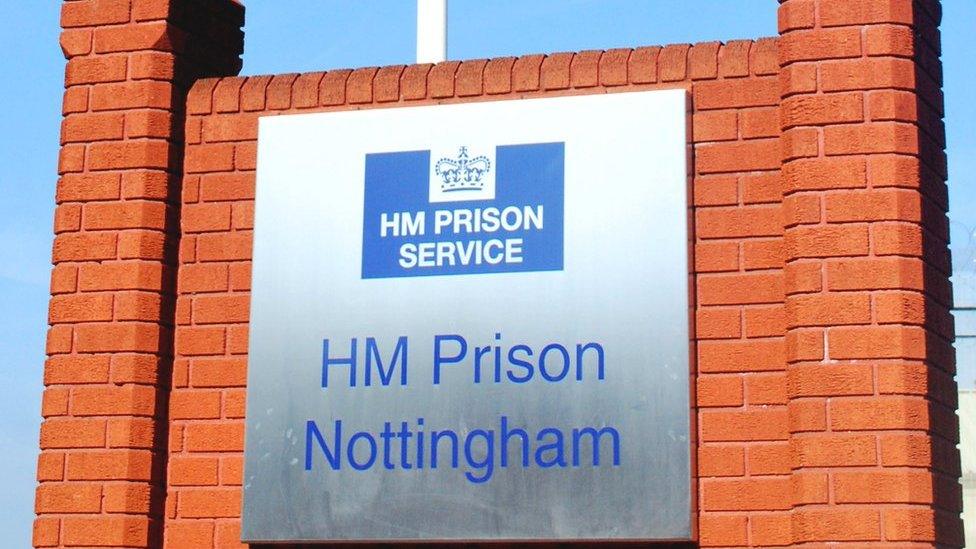
The Ministry of Justice said it recognised there was more to do at HMP Nottingham
Between 2013 and 2018 at least three prisoners died each year, peaking at seven in 2017, external, according to government figures
The number of assaults on staff between March 2018 and February 2019 was 244, an increase from 194 for the previous 12 months
The number of prisoner-on-prisoner assaults for the same period was 341, up from 246
In July 2018, inmate Ferencz-Rudolf Pusok, 28, was charged with murder following the death of fellow prisoner, 43-year-old Brett Lowe
Robert Frejus, 29, was pronounced dead at the prison on 9 October after being found in his cell
Wyndham Thomas, 41, died on 6 November after being found hanging by a ligature in a shower block
George McCallum, 79, died a day later
Ben Ireson, 31, died on 13 December

Inspectors also found problems with getting inmates with the greatest mental health issues out of prison for treatment.
A quarter also had no home to go to on their release, a problem the board said was made worse by a lack of space at homeless hostels.
However, the IMB said it had started to see a number of improvements.
It said more staff had been brought in and inspectors said those staff were becoming more trained and experienced.
Drugs had become more difficult to smuggle in or get hold of, it added.
Measures, such as more open common areas, seemed to have started to reduce violence levels since the completion of the report, the board said.
All of this was "improving prisoners' daily lives", according to the IMB's chairwoman Janet White.
A spokesman for the MoJ said it was pleased the efforts to tackle violence and drug use were starting to show results, and it was working to improve mental health access.
He said: "There is more to do and we are determined to see these improvements continue."

Follow BBC East Midlands on Facebook, external, Twitter, external, or Instagram, external. Send your story ideas to eastmidsnews@bbc.co.uk, external.
- Published7 June 2019
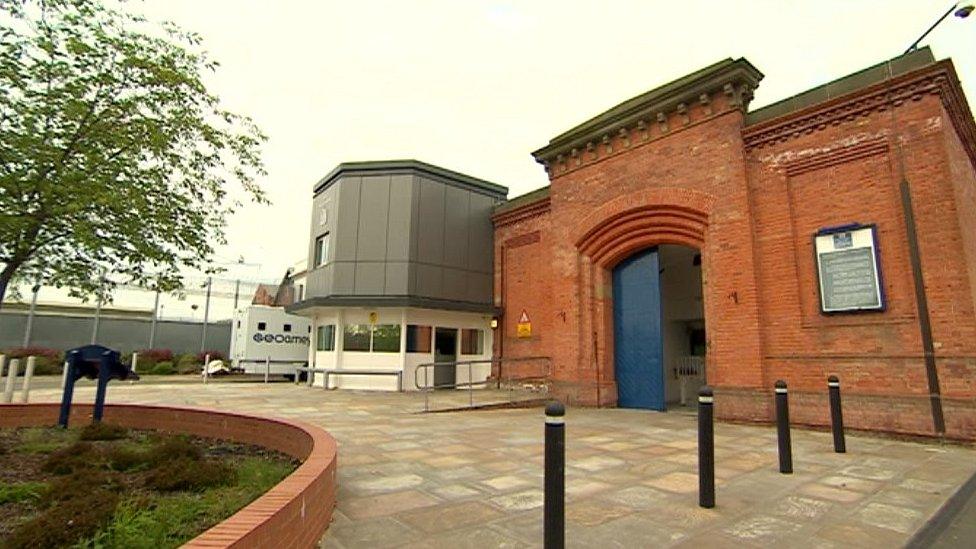
- Published15 February 2019
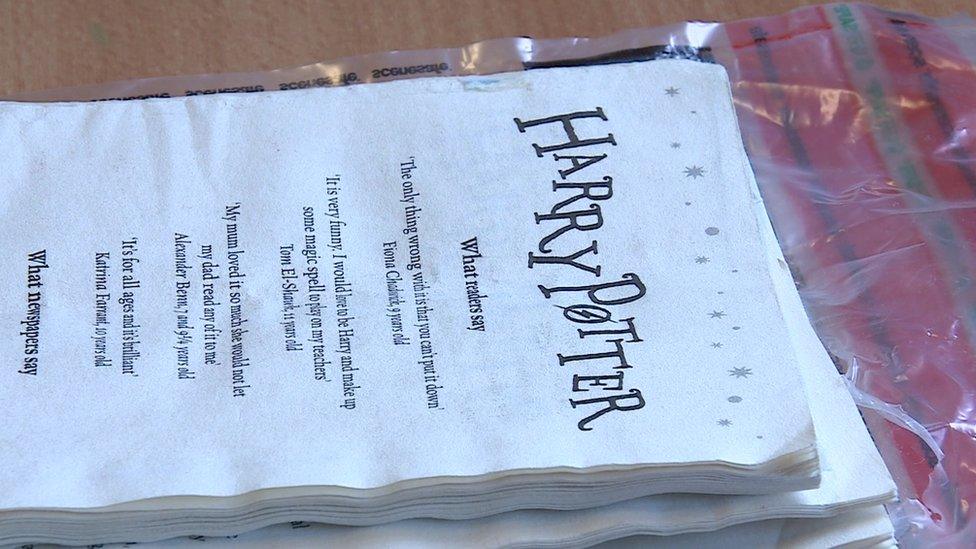
- Published14 December 2018
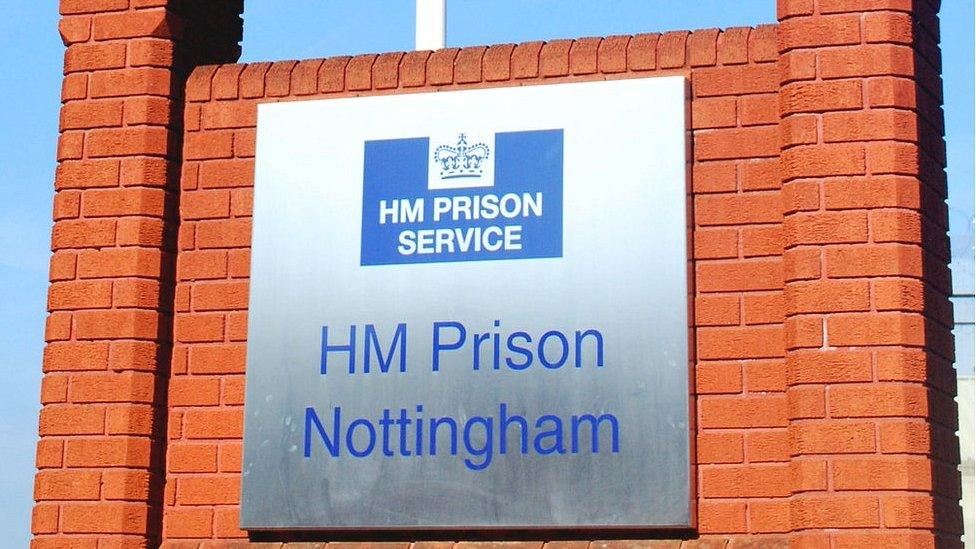
- Published17 October 2018
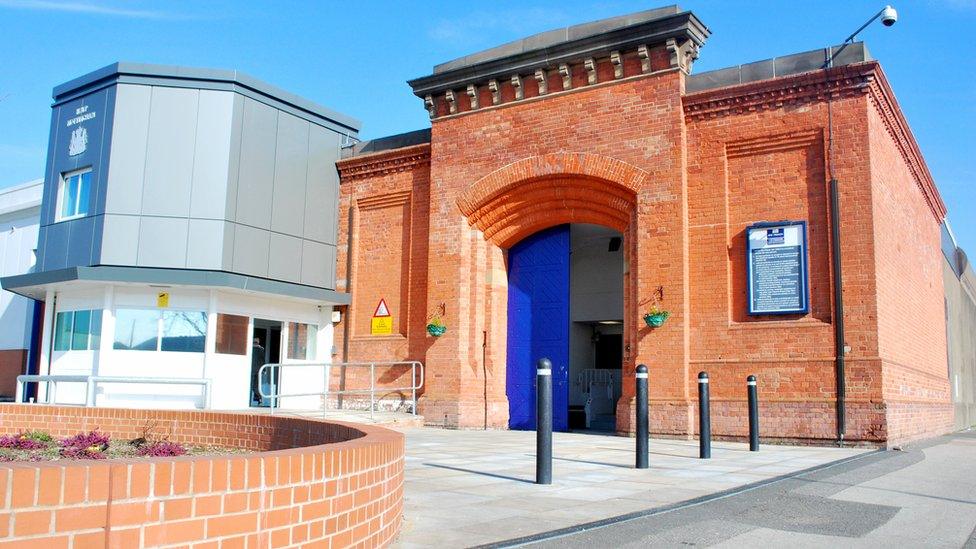
- Published21 July 2018

- Published19 January 2018
